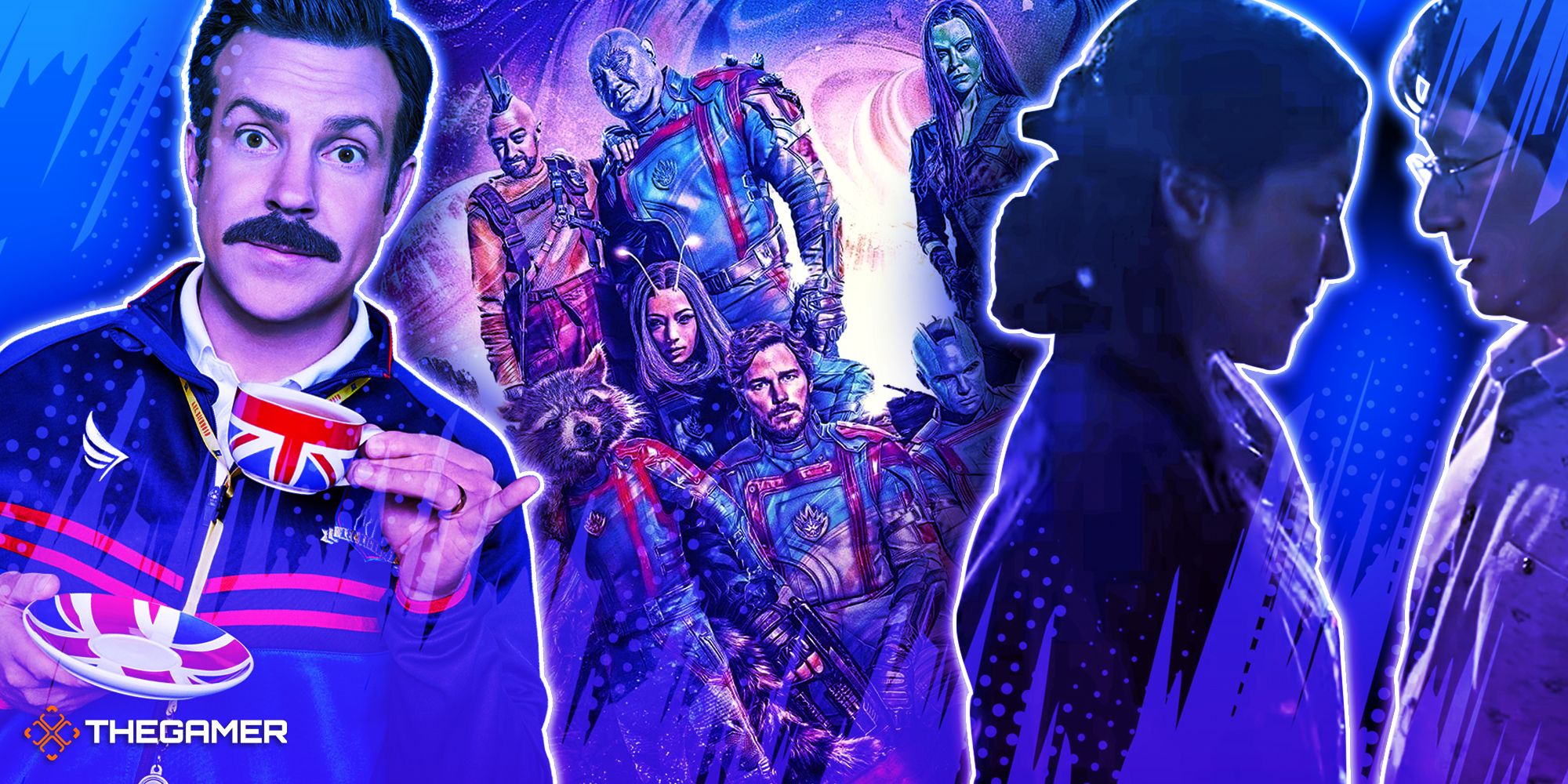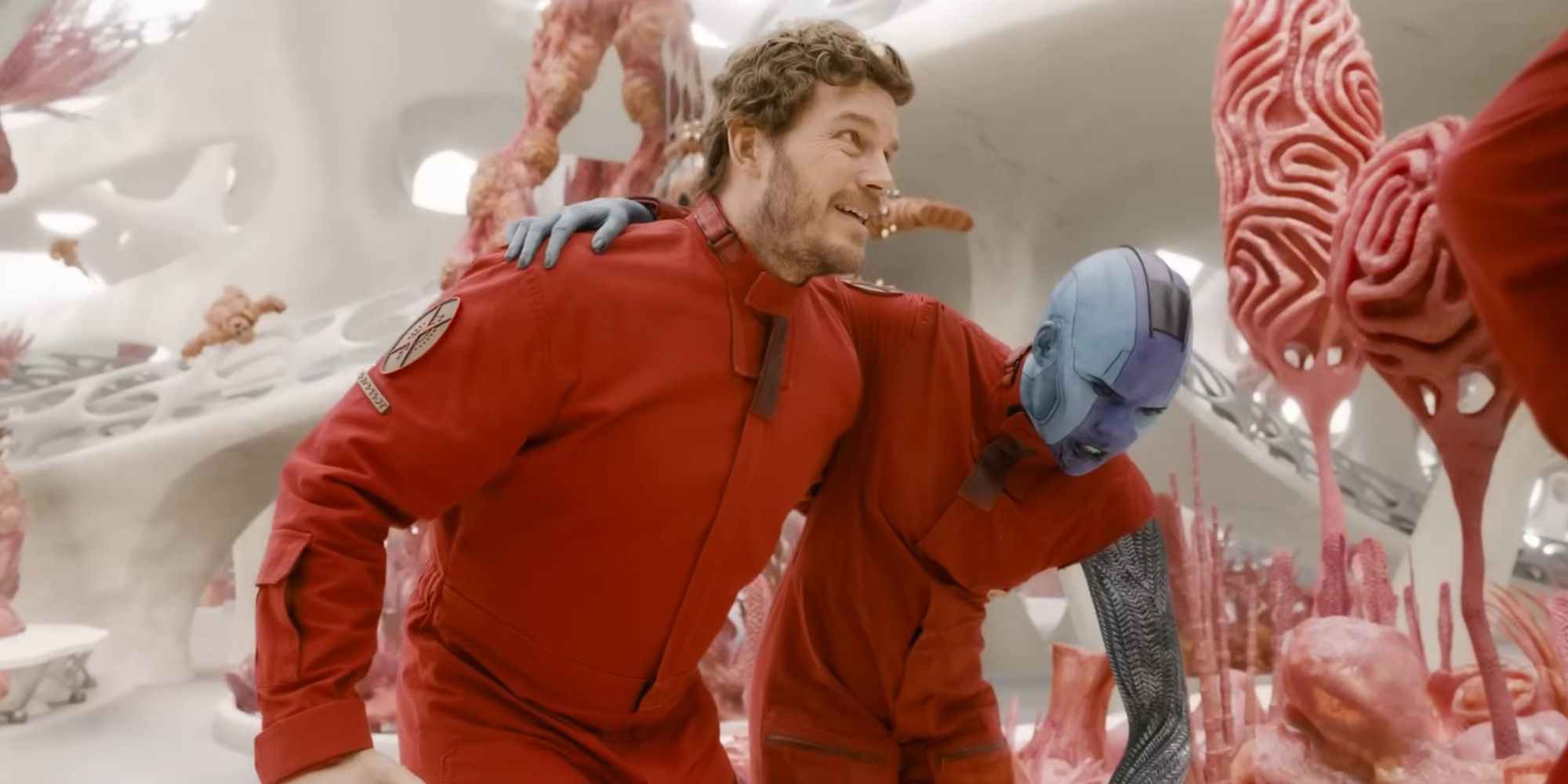Over the past couple years, it’s become increasingly common to flatten art in our conversations about its meaning. It’s so common that even the creators of the art do it, too.
“This is a story about compassion, it’s about the power of compassion, the power of empathy,” James Gunn recently said about Guardians of the Galaxy Vol. 3. I’ve seen and really like Guardians 3, but that's not how I would describe it. Fans of Everything Everywhere All At Once have often talked about the Best Picture-winner in the same way, calling it “a movie about kindness,” and the Apple TV comedy Ted Lasso typically gets a similar description.
I’m increasingly annoyed by this description. Not because there’s anything wrong with encouraging kindness, that’s obviously a good thing to do. It irks me because there are much better ways to talk about these movies. When we flatten pieces of art into signifiers of the consumer or creator’s goodness, it can have nasty effects.
Firstly, all of these works are about more interesting and complex things than “kindness” or “compassion.” Guardians of the Galaxy Vol. 3 is about found family, moving on after a break-up, reckoning with your place in the universe, whether or not there is a god, and whether he cares about you, valuing people for who they are and not for the things they can give you, and many other things. It’s a big, long movie and Gunn crammed it full of ideas. Reducing it to being “about compassion” sells it short.
Everything Everywhere All At Once, similarly, has a lot more going on thematically than insisting people be nice to each other. It’s about generational trauma, mother-daughter relationships, the Asian-American immigrant experience, big sci-fi ideas, nihilism, and the small moments that change our lives completely.
I didn’t watch Ted Lasso beyond the second season premiere, but judging by the first season, this is the one that most easily fits the “about kindness” rubric. Even then, the show is more interesting than that pitch, illustrating the degree to which being unflappably kind can take a personal toll.
Saying that movies and TV shows are about kindness also plays a role in a culture in which our identity and moral purity is shaped by what we watch. It’s less true for Guardians 3, but portions of both the Ted Lasso and EEAAO audience exhibited real toxicity toward anyone who criticized either, often cloaking their toxicity in progressive-sounding language. When you see the media you love as the embodiment of kindness, you can begin to see yourself as a good person just for liking it. Even if, while defending it, you don’t practice that kindness yourself.
It also can have negative effects for the creator behind the work when their life is revealed to be less than perfect. When John Mulaney checked into rehab and got divorced a few years ago, a lot of his fans demonstrated this kind of toxic positivity toward him, assuming that they knew him through his work and that he was a perfectly moral Soft Boy who loved his wife. It didn’t matter that his work had always revealed his struggles. Reality be damned; fans had decided who he was.
Mulaney’s work wasn’t “about kindness.” Neither, I would argue, are GOTG 3, EEAAO, or Ted Lasso. They’re better than that. You be kind. Let art be interesting.



